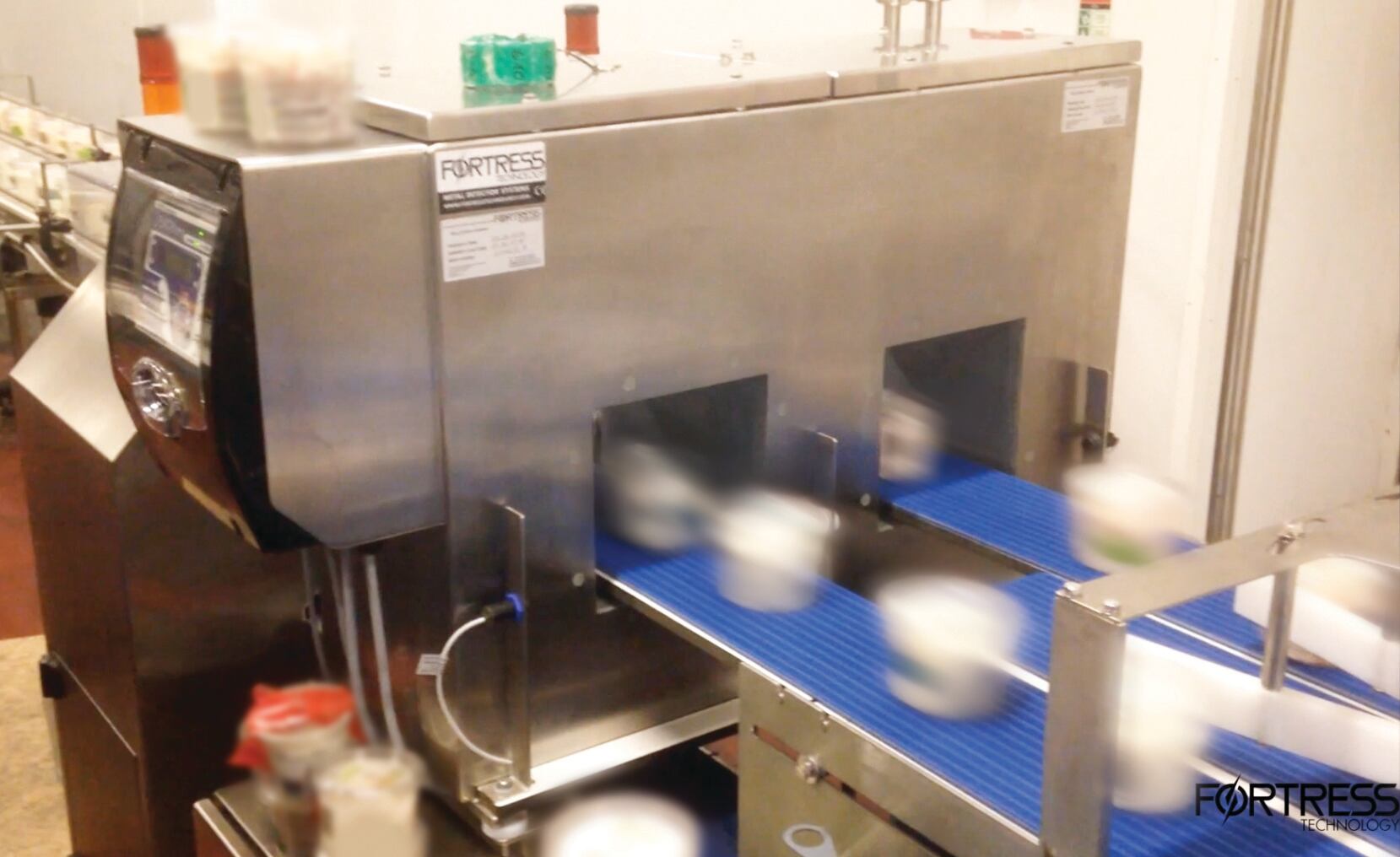It claims false metal detection readings can cost a company as much as £14,000 annually per production line in false product rejects but in recent months there have been significant sensitivity advancements.
PPMA 2015, NEC, Birmingham, UK
With this mind, Sarah Ketchin, managing director, Fortress Technology, told FoodProductionDaily, it will be making an announcement at PPMA 2015 (Processing & Packaging exhibition) September 29–October 1, 2015 at the NEC, Birmingham, UK.
“Water, like metal, is a conductive and all products, even a block of cheese compared with cheese slices, react in different ways in a magnetic field,” she said.
“This can lead to false readings and consequently higher product waste. Last year we launched FM software, which effectively analyses and processes the signal from the product, resulting in a 40% sensitivity increase when inspecting challenging products.
“And Fortress has something even better coming soon that will all but eliminate product effect. Look out for the big unveiling at PPMA 2015.”
Ketchin added, if a food manufacturer is running a high-speed product line, they don’t really care how many megabytes per second the microprocessor inside is capable of handling.
“Customers simply want the detector to perform, rejecting contaminated product accurately, without incurring high levels of false rejects. Virtually all of our metal detectors are in some way customised. Last year, over 40% of Fortress machines were ordered by new customers, including a number of global blue chip names,” she said.
Multi-lane single head system
“In recent months, there has been a lot of focus on customisations and fulfilling large machine orders. Our creation of a multi-lane single head system has been an exciting development and enables customers to inspect and independently auto-reject packs across multiple lines. It means you don’t have to purchase individual detector heads or conveyor systems for each line.

“Everyone is seeking a better and faster return on investment and ways to save on initial outlay and maintenance costs. Factory footprints are also getting smaller so we have designed a more compact solution which reduces line footprint by as much as 40%.”
According to Ketchin, multi-lane inspection will really shake up the market because there is only minimal widening of the conveyor belt to accommodate a single search head as opposed to installing four individual food metal detectors and it is capable of achieving all of the retailer performance specifications for ferrous, non-ferrous and stainless detection.
All four heads are controlled from the one control panel, which streamlines operator access. Individual items are inspected and rejected via a raise flap reject system in to a reject bin.
“To-date we have customised and installed two-lane and four-lane single head detectors. The two-lane version is approximately 80% the price compared to buying two comparable metal detectors and conveyors,” she added.
The company head believes sustainability is the topic on every manufacturers mind, but it can be challenging to demonstrate and quantify, especially equipment lifecycle.
“A metal detector is big hunk of equipment, most with coils embedded in epoxy or even concrete, making it harder to reclaim and recycle components,” said Ketchin.
Health & smaller pack sizes will continue to dominate the food agenda
“I don’t know many suppliers willing to bolt their technology onto another’s. But it’s how the sector is evolving. Up to 15% of global equipment sold by our company is integrated into non-Fortress units.”
She said health and smaller pack sizes will continue to dominate the food agenda, as will food waste but the industry must continue to strive for more improvements.
“In terms of food inspection standards, more often than not we are at the mercy of the big retailers. The frequency of when and how often new Codes of Practice will roll out is inherently a response to a wider issue, which keeps us all on our toes,” added Ketchin.
“Typically, there’s a new requirement every 18-24 months, the last big one was in 2012. Overnight, existing production line equipment failed to comply, resulting in obsolete equipment and worried food producers concerned that they’d lose the retailer’s contract.”
Fortress UK serves Europe, India, Pakistan, Gulf States and South Africa, plus significant expansion in Italy having sourced a reliable distributor PAKiTAL.
“Food security is important globally, but in the Gulf States especially the import market is vast and is anticipated to double by 2020 due to economic and domestic population growth. Fortress has recently sourced a new distributor in the United Arab Emirates,” said Ketchin.
